Khandallah School allowing evangelism
Mark Honeychurch - 2nd September 2018
On Friday afternoon I headed out to Khandallah School in Wellington as part of the Secular Education Network. SEN believes that schools should be secular, and that there is no place in our school system for Religious Instruction.
There’s a lot of confusion about what Religious Instruction (RI) is. Many people think that it’s lessons for kids about different religions, but unfortunately that’s not the case - that’s Comparative Religion. RI is the teaching of one religious belief as fact - it’s seen by churches as a way of converting young people into the faith. And, of course, in the long run it pays off for a church if they can attract new young members.
SEN was contacted recently by parents at Khandallah School because of their concerns about the reintroduction of RI. The parents of some of the children at Khandallah School go to an evangelical church in Wellington, Arise Church, and there’s been a bit of a rocky history with Religious Instruction being allowed in the school, with the school previously doing a pretty bad job of notifying school parents about the course and its content.
Some of the concerned parents have formed a group, called Keep Khandallah School Secular, where they believe that religion has no place in their kids’ school. One of the parents found out recently that, despite promises that any decision making around bringing RI into the school would be open and transparent, the school Board of Trustees was quietly bringing in a new school “clubs policy” which contains a paragraph about explicitly allowing religious based groups into the school. Interestingly, I’ve heard that one of the school Board members is part of the Arise Church leadership team, and has been instrumental in pushing for RI to be allowed at the school.
The concerned parents decided that they needed to let all parents at the school know about this proposed new policy, so that everyone could have their input. However, they were concerned about backlash from other parents. One of the things that RI in schools tends to cause is a fracture among parents. Often in schools there are a few parents who are actively opposed to RI, and those parents are normally made to feel like their views are not welcome. In urban schools such as Khandallah, where there are parents of many different faiths, RI tends to be more divisive, and some of the parents at Khandallah had already received negativity from the Board and other parents because of their view that the school should be respectful of all beliefs, and not just aid the promotion of a single evangelical Christian belief.
So this is where SEN comes in. It was great for us to be able to offer material support, as it’s a lot less stressful for us to stand outside the school at 3pm handing out flyers that it would be for the parents of kids at the school. We were able to help the parents inform their peers about this issue, without suffering any backlash. Four of us met and headed to the school just after 2pm:

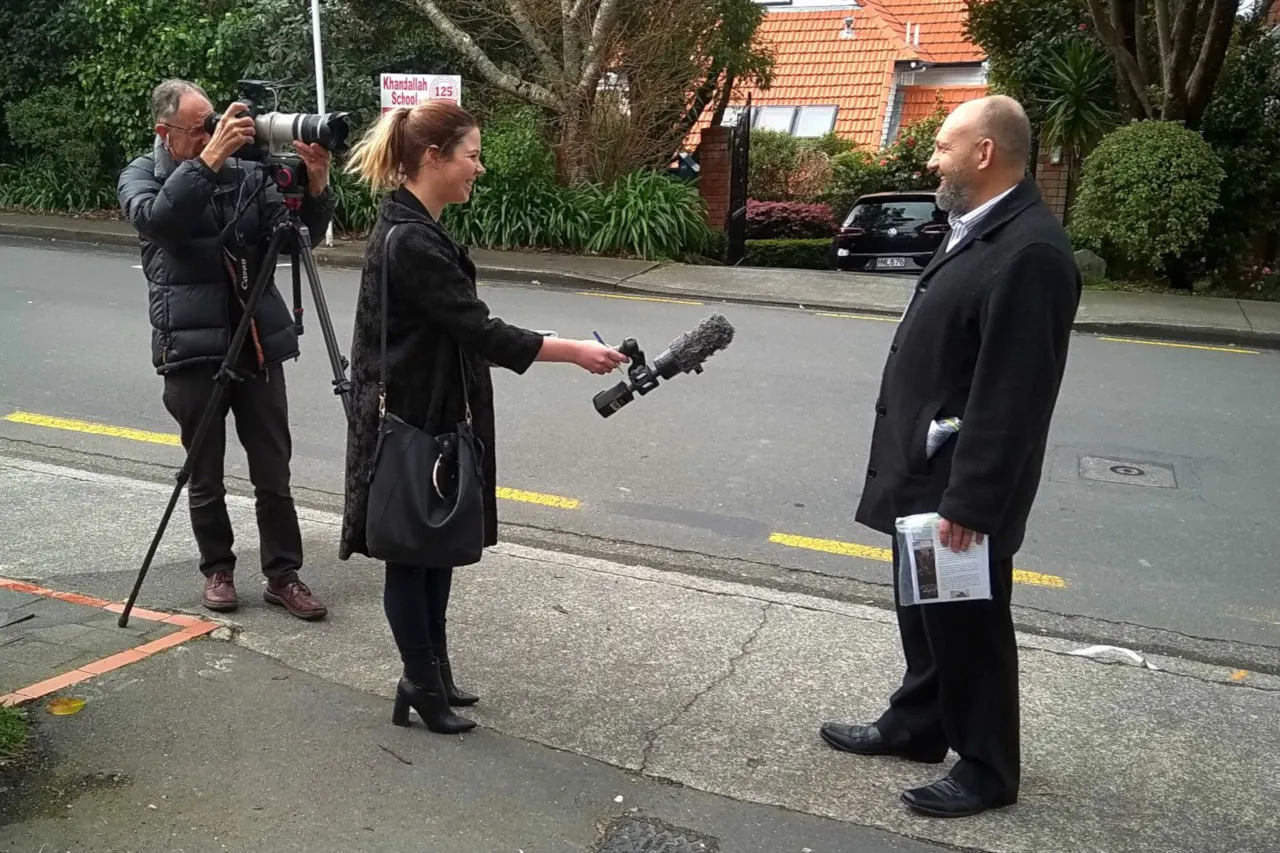
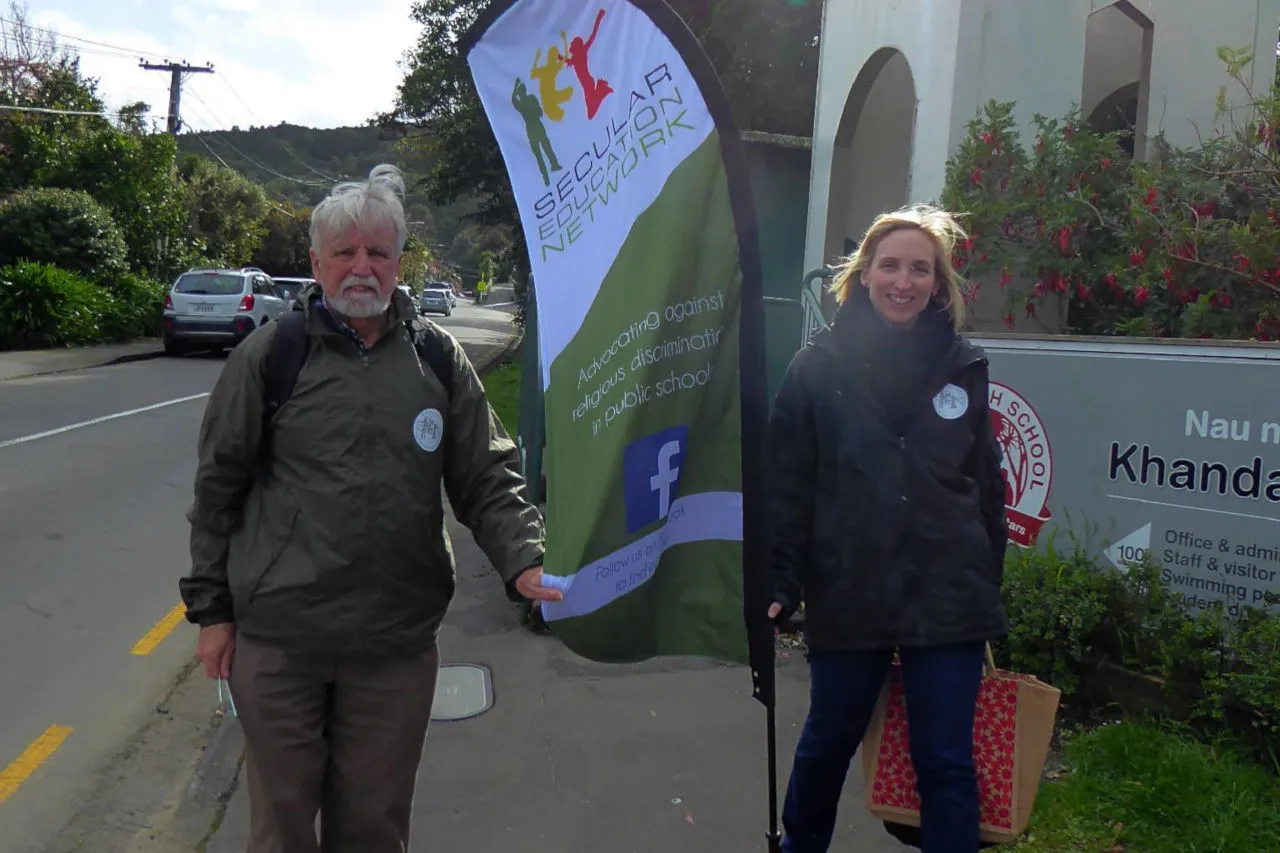
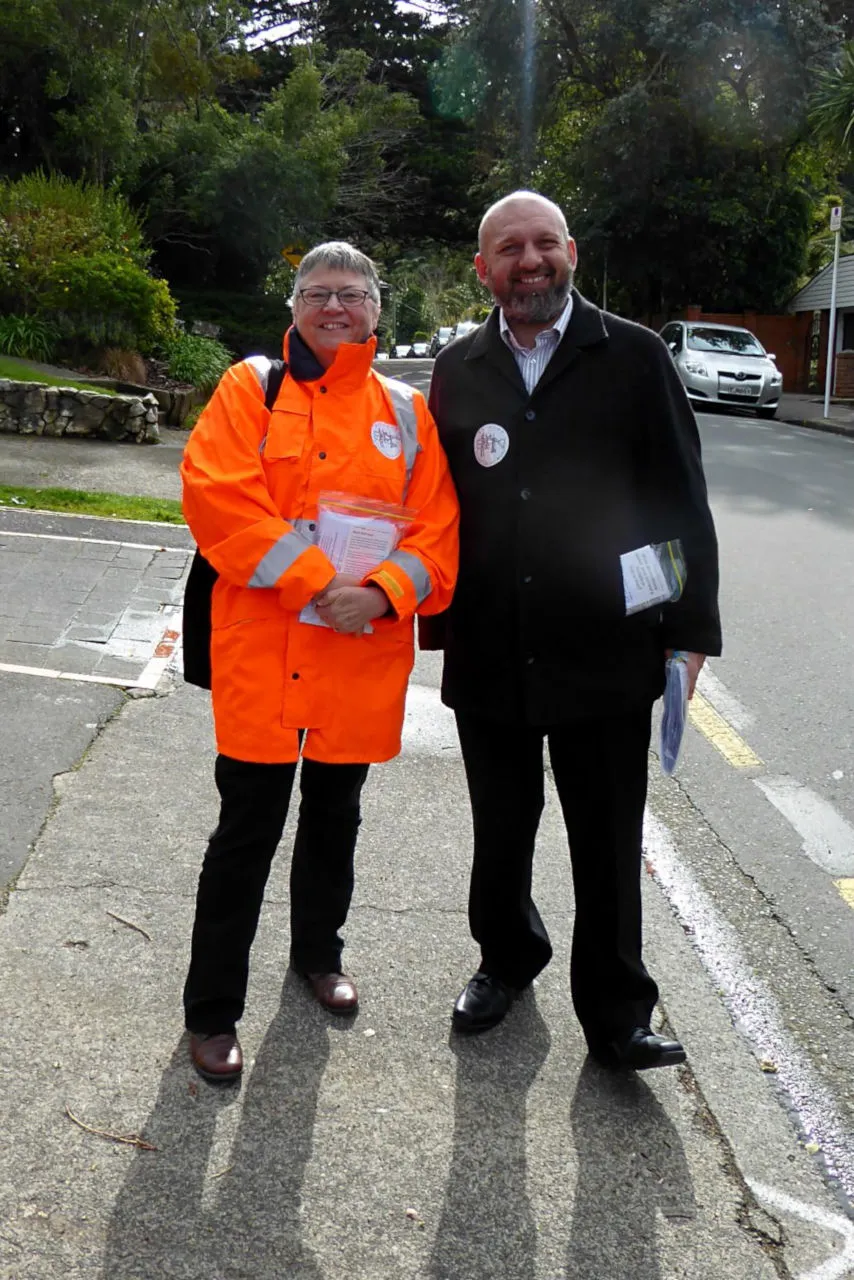
We handed out several flyers - an overview of Religious Instruction in schools and why it’s a problem, some info about what’s happening at Khandallah, details of Arise church’s view on RI, and a copy of the school’s proposed new clubs policy.
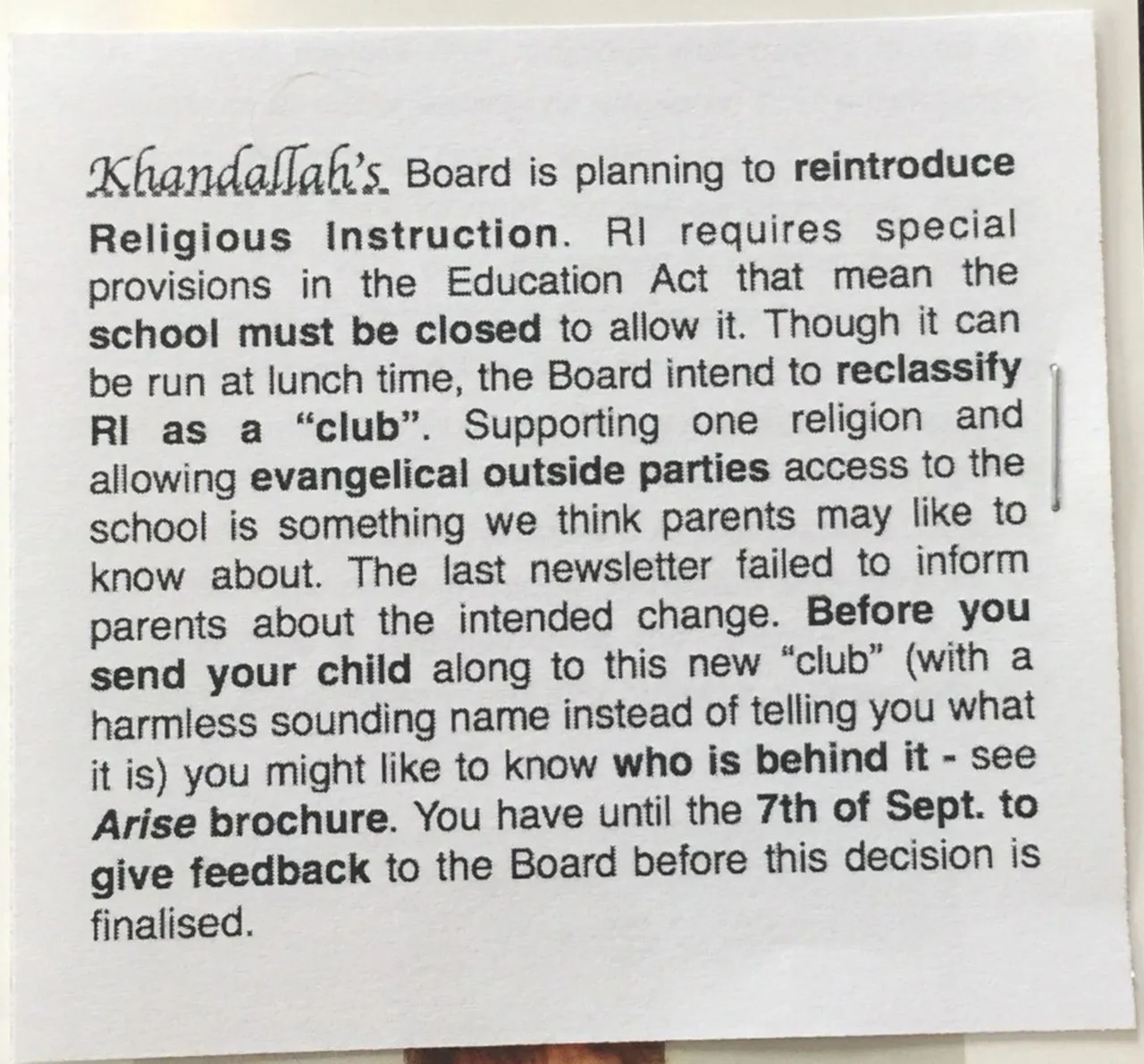
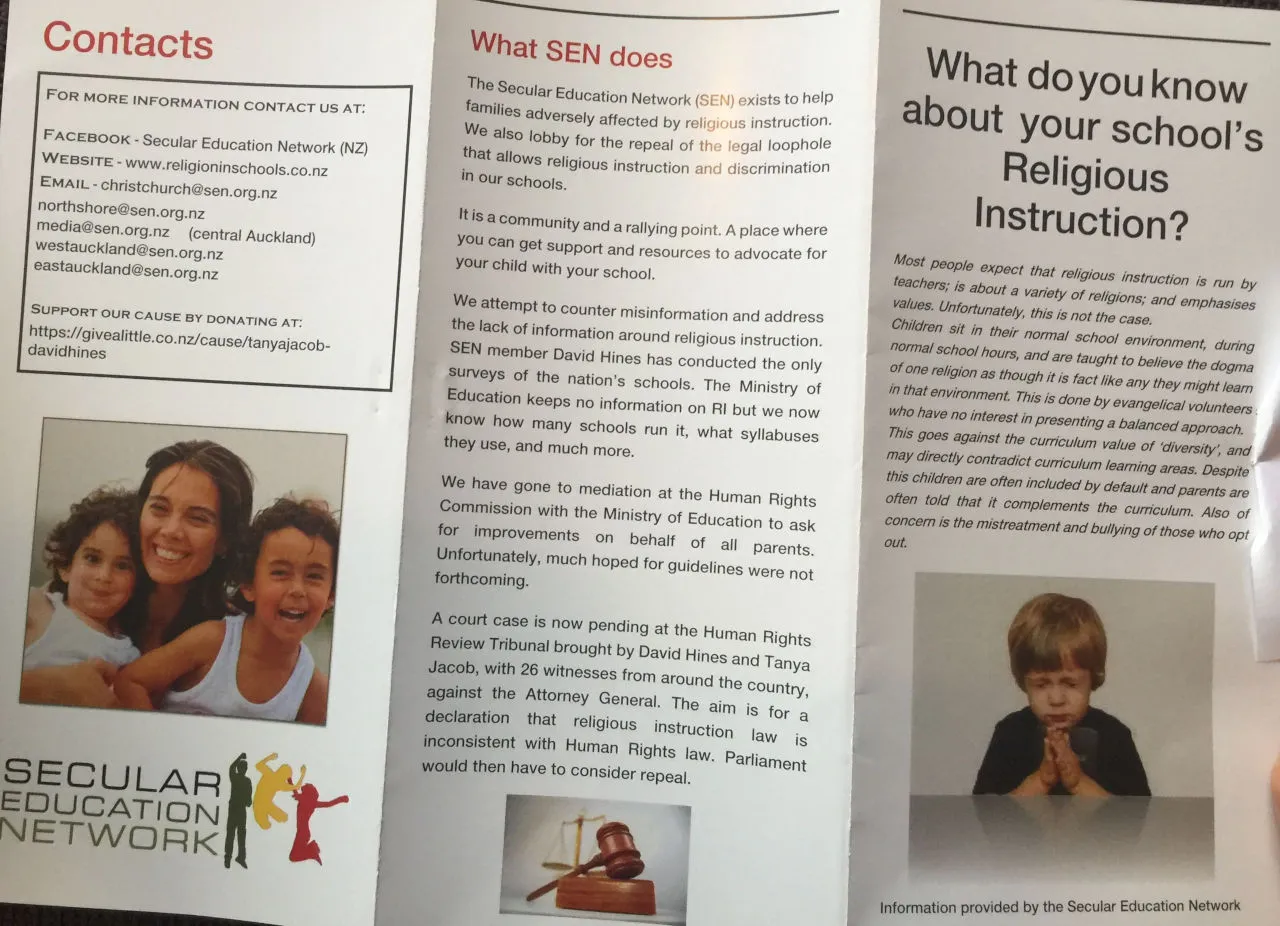
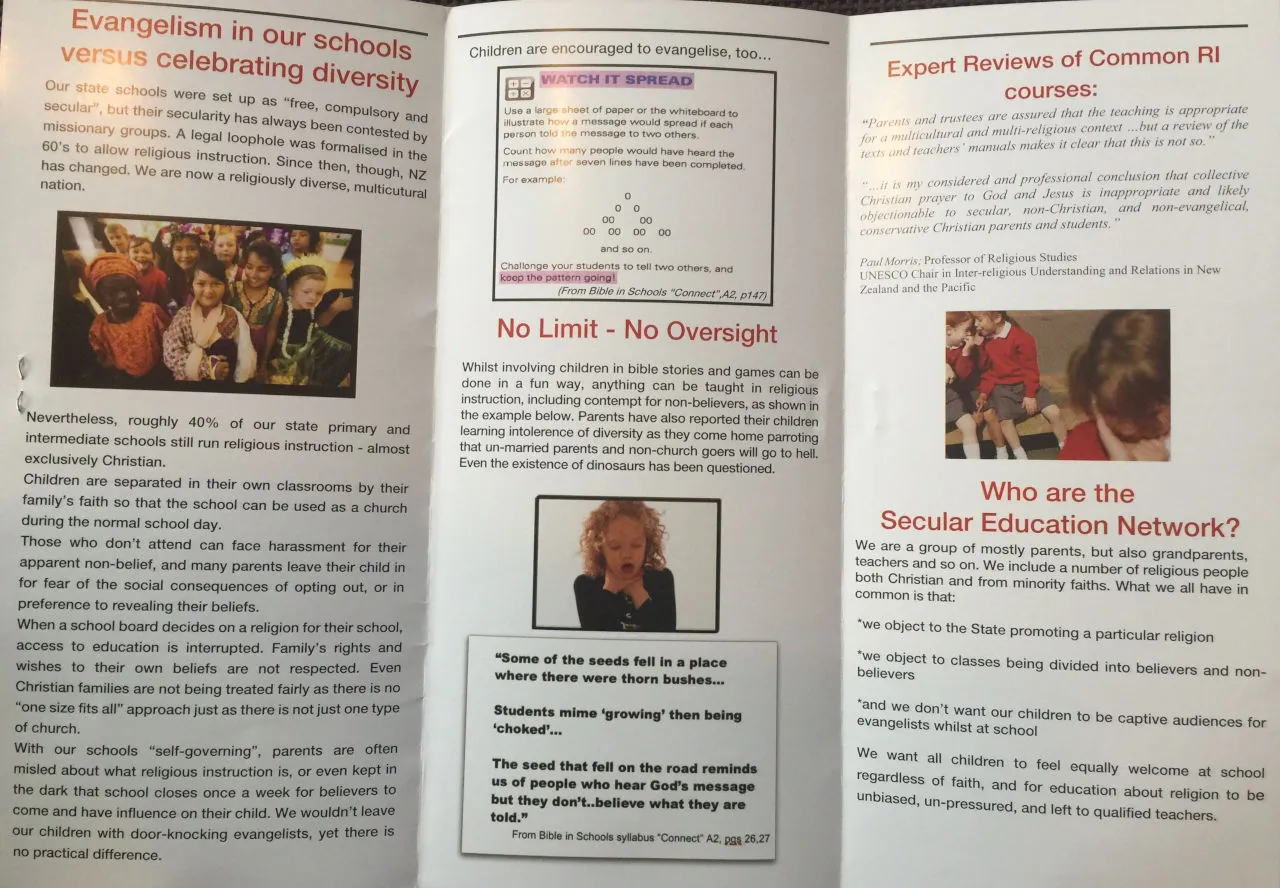
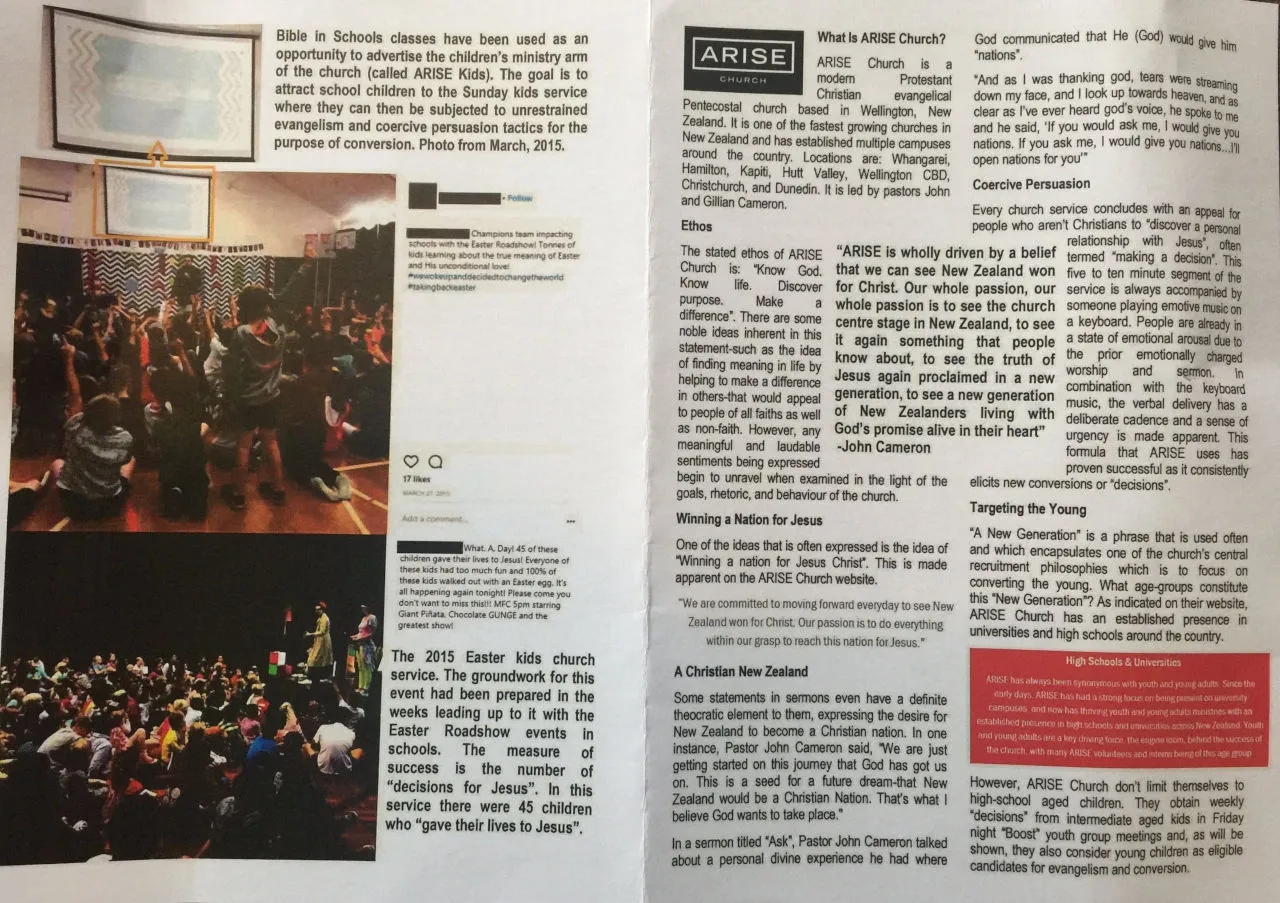
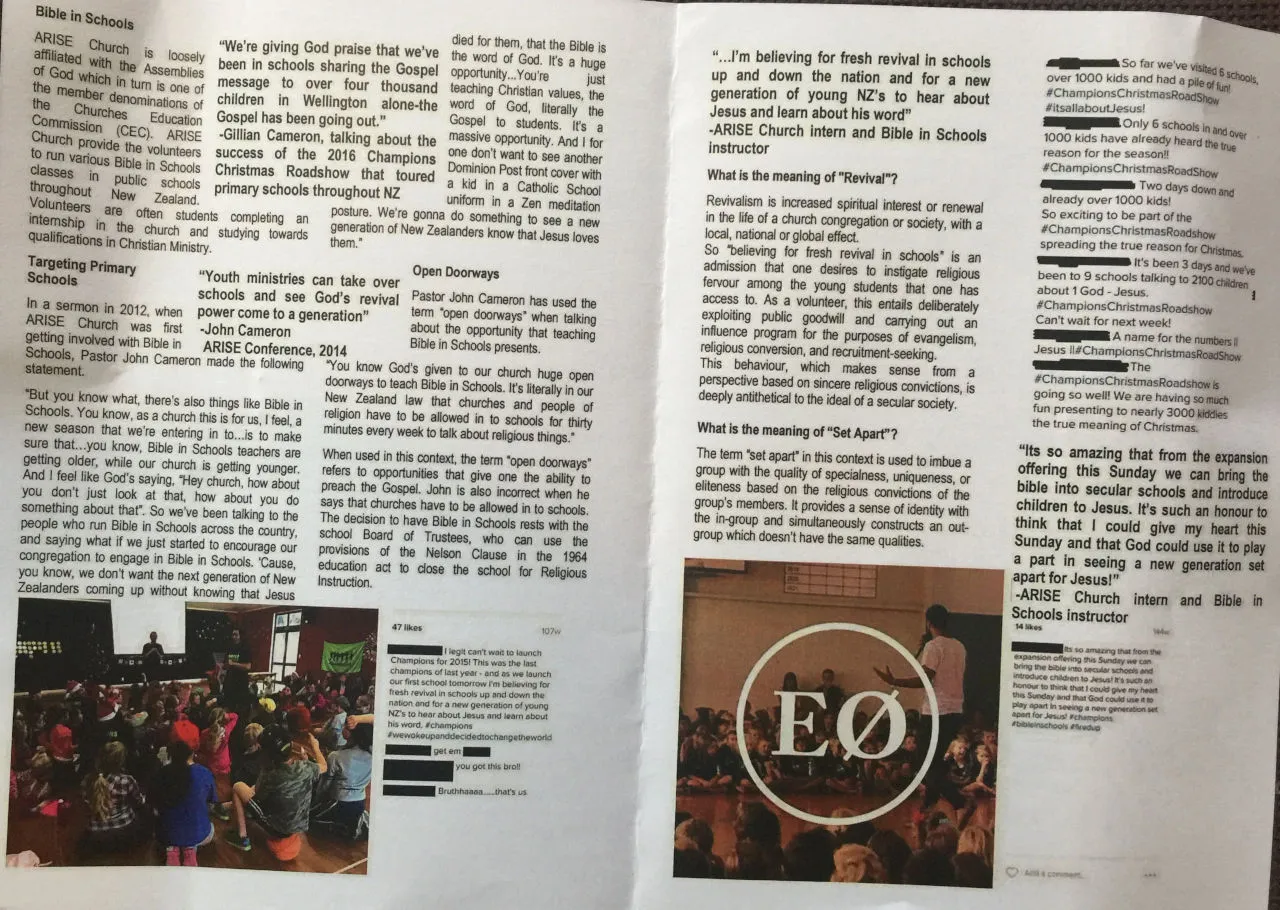
The Policy
Religious Clubs
A part of Hauora recognises the need for spiritual well-being. This encompasses the values and beliefs that determine the way people live, the search for meaning and purpose in life, and personal identity and self-awareness (For some individuals and communities, spiritual well-being is linked to a particular religion; for others, it is not).
In addition to the expectations set out for clubs above, any club that is about religious instruction must also:
- Only educate children about values and beliefs but never evangelise.
- Use a roll and only include those who have been opted in by their parents or caregiver.
- Operate a programme for no more than 30 minutes per week within Khandallah School.
- Only run while the school is closed for instruction (e.g. Lunchtime).